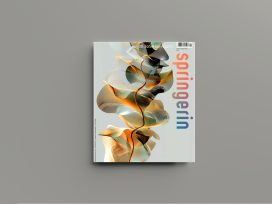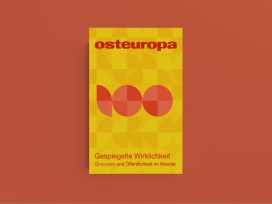Seventy per cent of Res Publica Nowa‘s budget comes from The Polish Ministry of Culture and National Heritage, which operates a support program for cultural magazines. We are currently on a three-year grant, which began this year. A further 20 per cent comes from sales and advertising and 10 per cent from other sources. We also apply for funding for individual projects that help us cover overheads. This comes from various bodies at national and European levels. We do not benefit from “hidden funding” such as library subscriptions or tax or postal rebates. We use voluntary unpaid work – we usually have 4 or 5 volunteers at any one time. They are involved in research, distribution and promotion.
Financing European cultural journals
Like other types of cultural organization reliant on public funds, cultural journals throughout Europe have felt the impact of recession. In addition to funding cuts, journals are also having to negotiate the upheavals taking place in the print sector.
Through a European survey of financing for cultural journals, Eurozine takes stock of the situation of the network, in order to communicate its experiences internally and to others who hold a stake in European cultural policy today. [more]
Read the statements here:
Varlik, Turkey
Ord&Bild and Glänta, Sweden
Vikerkaar, Estonia
Wespennest, Austria
Sodobnost, Slovenia
Host, Czech Republic
Res Publica Nowa, Poland
Mute, UK
Intellectum, Greece
Blätter für deutsche und internationale Politik, Germany
The financial situation for
Res Publica Nowa is gradually worsening. Although one can’t speak of a “before and after” –
Res Publica Nowa only started in 2008 and even then times were hard – we are seeing our subsidy from the Ministry of Culture dropping annually. Whether this is the result of a particular cultural policy is debatable, since no clear direction in the current system of funding can be distinguished. Of course, the Ministry of Culture organizes a annual competition where they announce a set of criteria that relate to quality of content, potential and organizational skills. Each magazine is rated on this basis. What is new is the three-year program of support for those magazines that gain enough points. But we’re talking about professionalization here, not cultural politics as such.
There are two variables involved in the way the money is allocated: the total amount of money available and the way it is divided amongst competing journals. In 2011 the total was 2,500,000 PLN (606,000 euros) and in 2012 it was 3,500,000 PLN (850,000 euros). However in 2011, the highest subsidy to an individual journal was 140,000 PLN (34,000), while in 2012 it was 106,900 PLN (26,000 euros). This fairer distribution system was the result of a huge discussion in 2011, when it turned out that many distinguished journals hadn’t received support. The Ministry accepted it had made a mistake and offered additional resources in 2012, and has changed its rules to avoid a similar situation.
Res Publica Nowa publishes between 30 and 40 per cent of its print content on the website, which is also a magazine in its own right with original content. We use Facebook, Twitter and a blogging platform to promote our content. Around 40 per cent of our visitors to the website comes from social media platforms. This year sales of the print journal dropped by 10 per cent in 2011. At that same time, we have 40 per cent more online readers. Each issue is available in Kindle, iPhone/iPod and .pdf format. Nevertheless, for us the print journal will remain the main format. We will fight for it.
As to whether digitization has brought a decline in demand for the type of text we publish: yes, we have had to adapt. But one needs to bear in mind that, in addition to the effects of digitization, reading in general has declined in Poland. We therefore prefer shorter articles and adopt one general rule for contributors – if you’re a scientist, write like a journalist; if you’re a journalist, write like a scientist. It works for us. In 2011 we revolutionized our website, practically abandoning the publication of long articles. Of course, this was not an easy decision, but we understood that some concessions to changing reader habits had to be made.
We see ourselves as a traditional media of a particular kind. The impact of any crisis is making itself felt very, very gradually. We have found that the large media are increasingly looking to our sector for new ideas. One example is interest in the city and urbanity. Since 2008 we have published three “city” issues and another is in planning; dozens of other niche magazines have also published on the topic. We can now see that the big media have also started getting interested.
In terms of our strategies and perspectives for developing as a journal: from the very beginning we have been active in areas beyond strictly publishing. There are is no other way to survive and publish in Poland. We run three main programmes. The first is the City DNA initiative, which promotes the inclusion of public opinion in forming cultural strategies in urban centres; the second is The Free Speech Partnership, which promotes intellectual exchange and experience-sharing in countries of the former Soviet Bloc, and which has given rise to a network of cultural journals in eastern Europe; and the third is the Central European Dictionary of Political Concepts, which aims at initiating public discussion in Europe on political dilemmas concerning Central Europe and thus to set new standards for the language of political debate in this region. All of these activities allow us to apply for grants that are not directly aimed at cultural magazines. Obviously, however, these programs feed into the mission and the content of the magazine.






